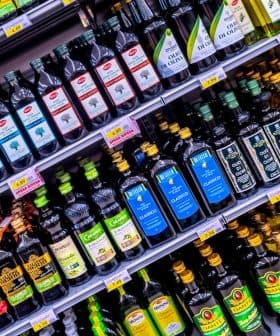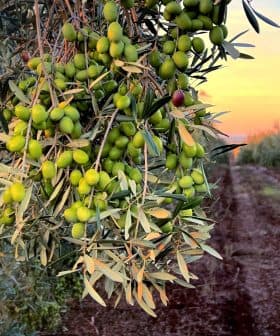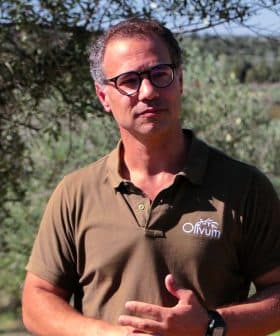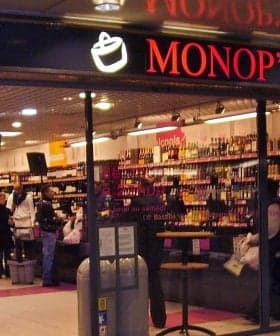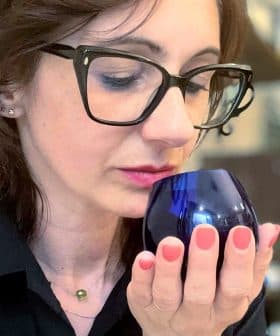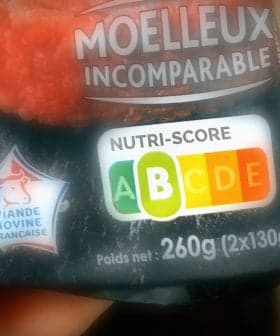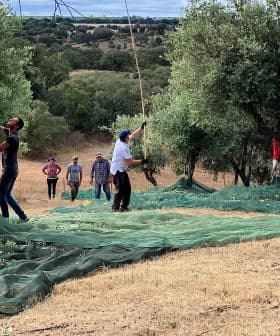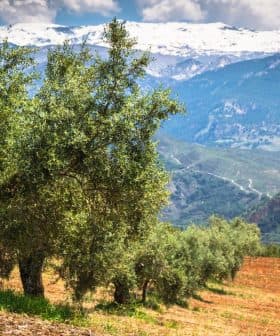Lisbon Shop Showcases Portugal's Best Oils
A quest for high-quality Portuguese olive oil led Ricardo Faria to open Portugal's first specialized shop.
 10.7K reads
10.7K readsRicardo Faria opened Loa — The Olive Oil World in Lisbon to provide high-quality Portuguese olive oils not found in supermarkets, offering a selection of 35 oils from PDO regions with different taste profiles. Faria aims to educate customers on olive oil quality, offering tastings and emphasizing the importance of freshness, while also providing feedback to local producers to improve their products.
Olive oil connoisseurs know that the supermarket might not be the best place to look for high-quality olive oil. Even in olive oil-producing countries, the shelves tend to be filled with mass-market brands, some of which might not even be extra virgin despite what their labels say.
I like to give them the sensory experience. By using a glass they can first smell the oil and already determine if it is good or bad with this important first step.
This is something Ricardo Faria wanted to address by opening Loa – The Olive Oil World, a specialized store in Lisbon where he stocks some of Portugal’s best olive oils.
Arranged neatly on wooden shelves are around 35 oils from the PDO regions — Norte Alentejano, Alentejo Interior, Trás-os-Montes, Beira Interior, Ribatejo and Moura — of different varieties and taste profiles ranging from mild, sweet and delicate to intense, spicy and bitter.
Before moving into the retail business, Faria had worked as a civil engineer for ten years when he decided it was time to make a change. His idea to open a shop specialized in olive oil was inspired by the olive tree growing in his small garden and by his own quest for high-quality oil he could enjoy in his kitchen.
“There are so many wine shops in Portugal but none specialized in olive oil,” he told Olive Oil Times. “Yet Portugal has a great tradition and many excellent olive oils to offer. But as a consumer, I found it difficult to find good ones. There was only what’s available in the supermarket which is mostly low quality.”
Another problem he identified was the lack of information for consumers which makes buying a quality olive oil a challenge. “In supermarkets, you won’t find details of the harvest time on the bottle. And even if it’s labeled extra virgin, this doesn’t mean it’s good quality. And then, of course, you can’t taste the oil before buying it. So it’s difficult to make a good choice and consumer trust is low.”
See Also:How to Find the Best Olive Oils NearbyWhen he opened Loa’s doors in April 2017, Faria had already had a trial run selling quality Portuguese olive oils online. But he soon realized that an online store was not the best way to market and sell olive oil. “The problem with the online store was that it had limitations: people didn’t have the opportunity to taste the olive oil and appreciate it,” he said of the experience. “It’s a difficult product to sell and if they can’t taste it they won’t buy it.” Not to mention the shipping costs.
In order to choose the olive oils he would stock in his store, he decided to take a course in the sensory assessment. What was a keen interest in olive oil quickly became a passion and a desire to share his newly found knowledge.
“I took the three-level course in sensory assessment available at the Institute of Agronomy here in Lisbon with olive oil specialist José Gouveia,” he explained. “He’s a retired professor who now holds workshops and heads a tasting panel. And he’s now a regular visitor to my store.”
“Of course I only choose olive oils of great quality,” he added. “I’m not necessarily drawn to award winners because not all producers enter contests. I have oils by producers who have a very small production, maybe only 100 liters a year, but the quality is great. These fall under the radar but are a delight. I have some exclusive oils that are only available in my store. I also try to choose good packaging because it’s also important for the consumer.”
Loa currently carries eleven award-winning brands from the 2019 NYIOOC World Olive Oil Competition, according to the new retail locator app on the Official Guide to the World’s Best Olive Oils.
Visitors to Loa can sample oils before making a selection through a guided tasting led by Faria himself. He finds that most people who come to the shop expect to taste the olive oil with bread. Although he has some available for this purpose, he encourages his customers to taste it “pure” in a glass, like professional tasters.
“I love to talk about olive oil and I like to see people enjoy it,” he says. “I explain that olive oil tasting is similar to wine tasting. I like to give them the sensory experience. By using a glass they can first smell the oil and already determine if an oil is good or bad with this important first step.”
Faria’s mission is not only to offer an expertly curated selection of some of Portugal’s best olive oils but also to introduce his customers to the world of olive oil and teach them some of the basics. This includes not only general information on how olive oil is produced and what makes an oil an extra virgin, but also other more practical tips: how to read labels, how to cook with it, and how to store it at home.
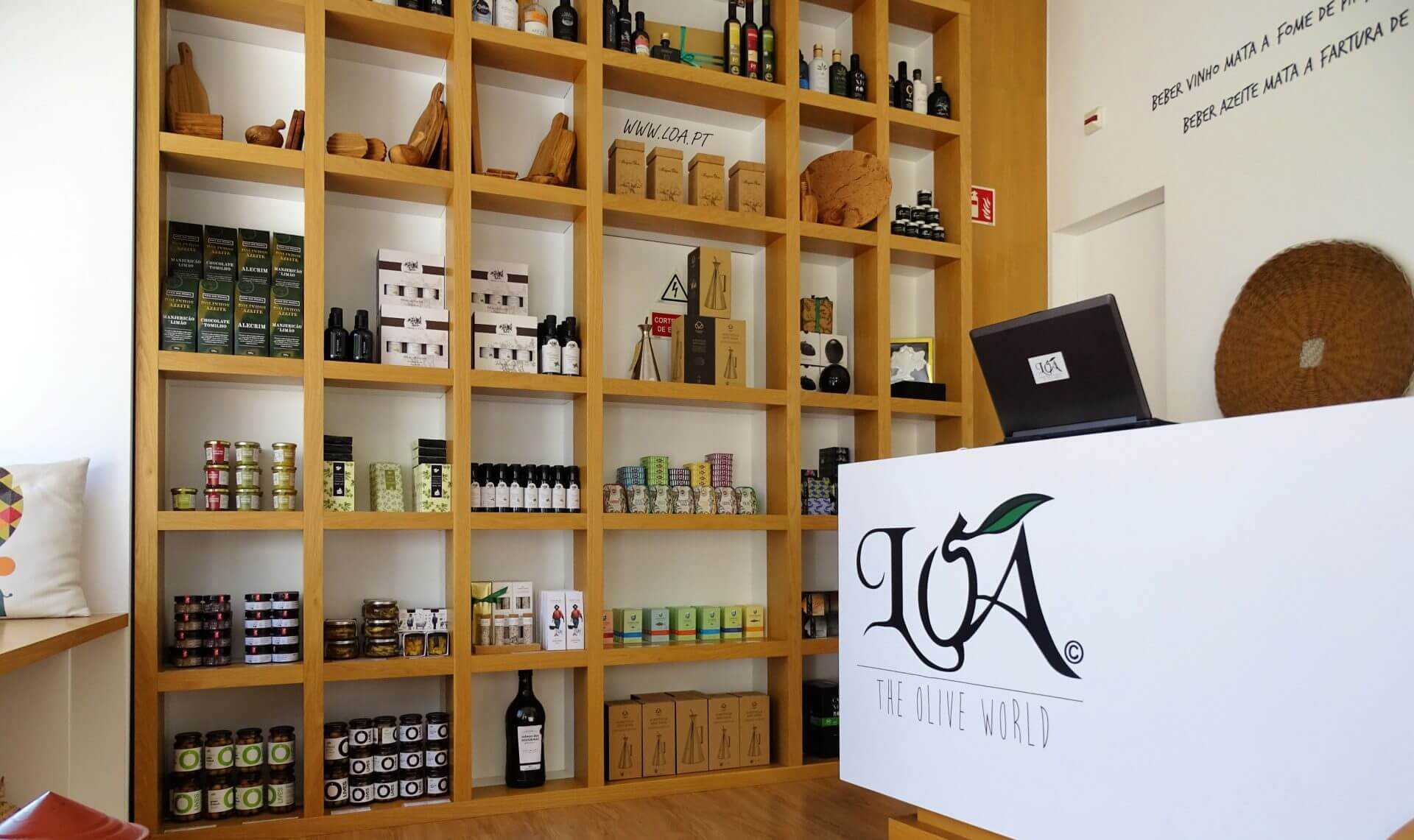
Faria makes sure to tell his customers that olive oil is best when it’s fresh and should be consumed as quickly as possible. “This is a very important thing that most people don’t know. They think olive oil doesn’t have an expiration date. I always have the freshest olive oil available in my store. The 2019/2020 harvest oils have already started to arrive.”
When asked which varieties and taste profiles tend to be most popular among his customers, his reply was that this can be very random. “People who don’t know olive oil generally like mild ones because they like the sweet sensation. Expert tasters go for the more intense olive oils. There’s something for all tastes. But mild olive oils tend to sell more.”
While Faria mostly sources olive oils himself, he also receives samples from local producers and makes it a point to provide them with feedback.
“Now producers come to me and send me samples,” he said. “I receive good olive oils, bad olive oils, a bit of everything. I try to give feedback to producers who send me samples that can’t be labeled extra virgin. I talk to them and try to find out where the problem is so they can improve. Not everyone is open to feedback. The reality is that some producers have inherited trees but don’t know much about the correct process to make quality olive oil. I try to educate them.”
Portugal is the fourth-largest producer of olive oil in the European Union after Spain, Italy and Greece. With over 20 native varieties such as Galega, Carrasquenha, Cobrançosa, Cordovil, Maçanilha Algarvia, Verdeal and Madural, they represent a variety of taste profiles.
“Portuguese olive oil can be fruity, but we also have milder and sweeter oils with hints of apple, tomato, avocado, others with a more grassy green profile with hints of banana peel, arugula, artichoke,” Faria told us.
“It’s important to keep our identity,” he added. “That’s why we should value our Portuguese varieties and maintain them.”


